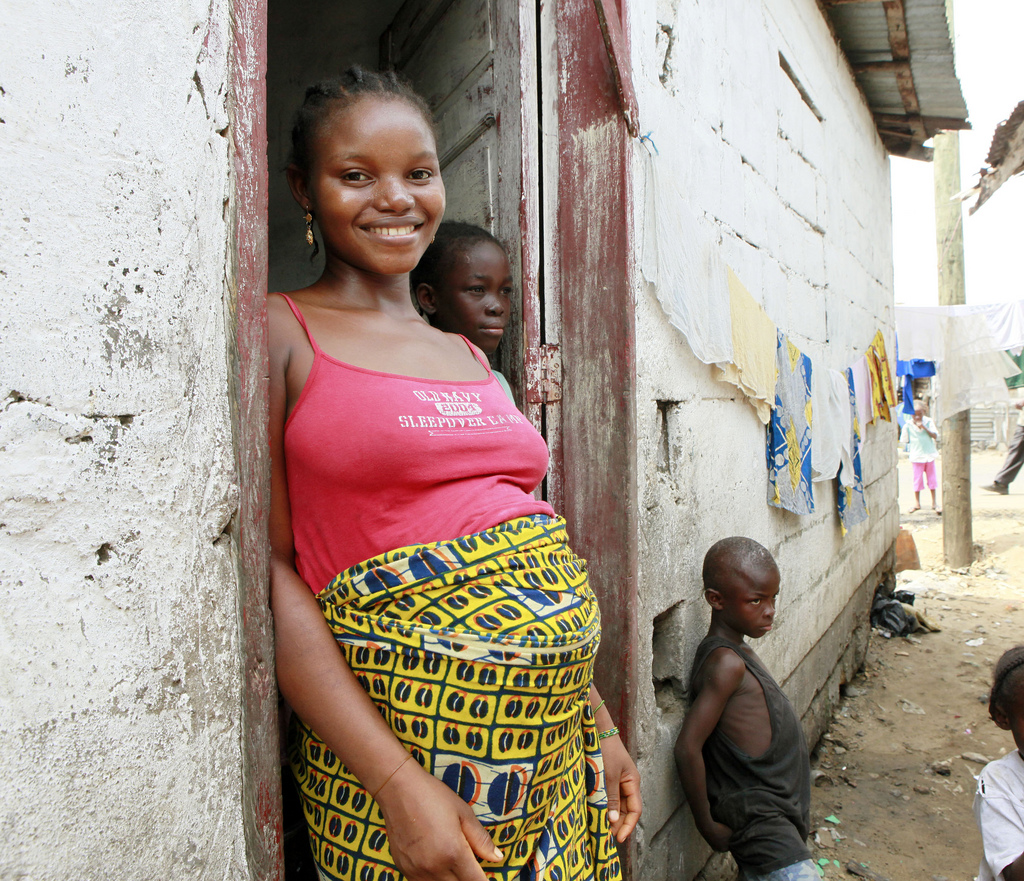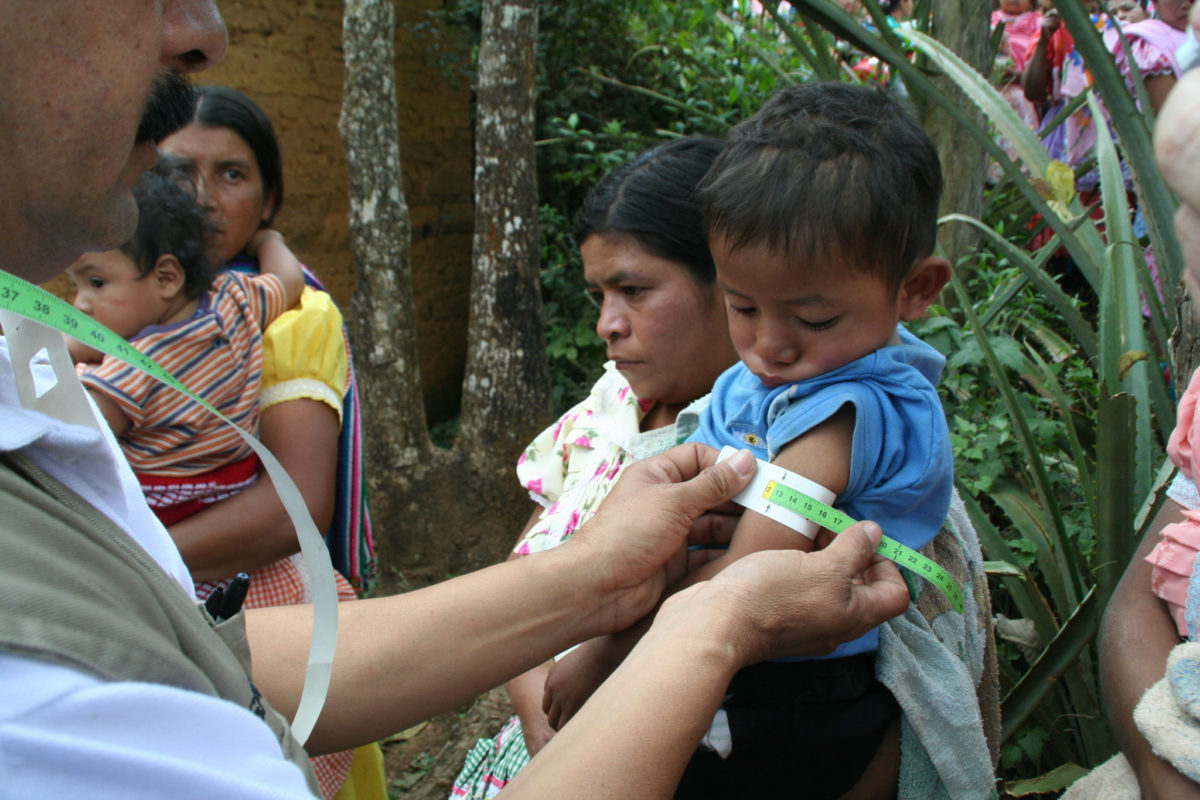By: Lesley Oot, Hwida Sevigny and Karin Lapping
As leaders of more than 120 countries gather in Glasgow today to open the UN Climate Change Conference (COP26), all eyes turn to the global climate crisis and the urgency of this moment for the future of our world. However, COP26 will likely attract less attention from the nutrition community.
2021 is the Nutrition Year of Action. With global events like the Nutrition for Growth (December 2021) and the UN Food System Summit (September 2021), there has been increased focus on the need to address malnutrition in all its forms and create a global food system that is resilient, sustainable, and nutritious for all.
Despite some efforts to unite the nutrition and climate agendas, there has been limited traction in bringing the two communities together to understand each other’s perspectives and develop practical solutions that address both agendas.
Nutrition, climate change, and the food system are highly interconnected, and climate change and global malnutrition cannot be tackled through siloed interventions and policies. Joint action from stakeholders across both communities is required for significant and lasting change.
How does climate change affect nutrition?
Climate change is threatening the world’s ability to achieve food and nutrition security. It negatively affects household food access, maternal and child health, and access to clean water and proper sanitation –– triggered by rising temperatures, changing weather patterns, rising sea levels, and increasingly frequent extreme weather events (e.g., droughts, flood, cyclones, fires, etc). The most vulnerable communities- the poor, women, children, and indigenous communities- suffer the most. These groups experience high exposure to natural hazards, yet have the least capacity to adapt to climate impacts. This will likely exacerbate the burden women already face in providing proper care of infants and young children, who are at the greatest risk of malnutrition. Recent estimates suggest an additional 500,000 deaths per year due to the climates’ impact on human diets by the year 2050 (Springermann et al. 2016).
Climate change is negatively impacting global diets and nutrition around the world by limiting food access, reducing food quality, and increasing the likelihood of unsafe food consumption.
- Drought, floods, and other impacts of climate change are limiting food production in many parts of world by reducing available arable land and crop yields, limiting crop diversity, killing livestock, and destroying crops. A report from UNICEF estimates that many countries may see a reduction in agricultural productivity between 9 and 21 percent by 2080, impacting not only the quantity of food available but the diversity and quality of that food.
- Climate change is affecting the quality of food produced as rising soil temperatures and higher levels of carbon dioxide (CO2) in the Earth’s atmosphere are reducing the nutrient content of foods. For example, the zinc, protein, and iron content of staple crops (e.g., wheat, rice, and corn) could be reduced by 5-10% by 2050. Rising levels of CO2 could result in 175 million people becoming zinc deficient, 122 people becoming protein deficient, and 1 billion women and children at increased risk of anemia and other illness due to reduced iron intake by 2050 (Harvard 2021).
- Climate change is also affecting global food safety, with rising water temperatures increasing the risk of human exposure to harmful algae and bacteria while rising temperatures and increased humidity are exposing new regions to the world (and exacerbating existing) to mold growth (e.g., mycotoxins and aflatoxins) that can contaminate crops and pose a serious health threat to humans and livestock if consumed (FAO, 2020; WHO, 2018). Climate change also hinders the infrastructure to deliver foods (e.g., requiring additional cold storage to keep foods safe) (Fanzo, 2018).
How do global diets and nutrition interventions impact the environment?
Nutrition simultaneously affects our climate through the way we interact with the environment and the foods we produce and consume.
- The current food system and dietary habits are a major contributor to GHG emissions, biodiversity loss, and pollution, as food production is estimated to account for 30 percent of global GHG emissions and 70 percent of freshwater use (EAT-Lancet Commission, 2021).
- Widespread pesticide and fertilizer use contaminate water systems, and fishing and livestock rearing practices further harm the environment – negatively impacting biodiversity by damaging natural habitats, changing ecosystems, degrading the soil, and contributing to massive deforestation (Fanzo 2018).
- Finally, the current food system wastes close to a third of all food produced, squandering not only the food itself but all the resources used to produce that food (e.g., water, land, energy, and labor) (United Nations Environment Programme, 2021).
Win/win actions that benefit nutrition and the environment
There are a range of actions that stakeholders in both the nutrition and climate communities can take to help reduce global malnutrition and benefit the environment.
- Encourage shifts to diets that are pro-planet: Work with your communities to promote a planetary health diet, which is based on healthy and sustainable ingredients and focused on the availability of indigenous (where possible) fruits, nuts, legumes, and vegetables alongside small portions of meat and dairy (EAT-Lancet 2019). This dietary shift helps to reduce the negative impacts of food production on land use, GHG emissions, and water consumption/pollution. The diet also stresses reducing the over consumption of foods and subsequent food waste produced, helping to mitigate the negative nutritional and environmental impacts associated with overconsumption of unhealthy foods. The EAT-Lancet provides guidance on what a planetary health diet could entail and how to support that transition through education, social and behavior change interventions, and policy change (Vermeulen et al. 2019).

- Conduct interventions with an awareness of climate impacts – including food safety, biodiversity, and emissions: Actors working within both the nutrition and climate spheres need to keep each other in mind when designing and implementing programs. For example, promoting climate smart agriculture interventions such as using improved seed varieties that are more nutritious but also more resilient to changing weather conditions, pests, and diseases. Another example is promoting improved post-harvest food storage and processing strategies can help to reduce waste, protect the nutrient density of foods, and improve food safety.
- Accelerate research on innovations, technologies, and interventions to promote sustainable healthy diets: We should continue to conduct research on climate-friendly solutions to help make foods more nutritious, yet resistant to the effects of climate change. One such example is the creation of biofortified foods (e.g., iron beans) that are not only more nutrient rich (higher iron content), but more resistant to the negative impacts of climate change – high yielding, virus resistant, and drought/heat tolerant (Bakker et al. 2021).
- Deploy evidence-based nutrition and climate friendly advocacy: Encourage governments and actors across sectors to come together to address common and systematic drivers to both climate change and global malnutrition, utilizing comprehensive policies and strategies to address current failures. Nutrition and food security should be integrated into both national climate change plans and sustainable development plans to create stronger policy convergence. Globally, nutrition and food systems should be a key pillar of nationally determined contributions (NDCs), which signatories to the Paris Agreement are required to submit every five years to the UNFCCC. This could help to ratchet up the ambitions of country NDCs and demonstrate good practices that can be shared amongst countries at key multilateral fora such as COPs and the High-Level Political Forum for Sustainable Development. Equity, gender, and youth inclusion should be key components to any successful policy efforts (Bakker et al. 2021). Stakeholders should also encourage countries to invest in data systems to monitor and track key climate and nutrition indicators to assess progress and inform future policy actions
Next Steps
Given the negative impact of climate change on global malnutrition and in turn the significant contributions of the current food system to climate change, it is vital that stakeholders from both sectors come together to discuss their needs and implement mutually beneficial solutions.
With COP 26 now underway, the time to act and come together is now. To learn more about the work of FHI 360 and its family of organizations, including FHI Solutions at COP26 please visit FHI 360 at the COP26 Global Climate Conference | FHI 360. Details are included on the FHI350 side event on climate finance.
References
Bakker, L. Macheka, L. Eunice, D. Koopmanschap, D. Bosch, I. Hennemann, L. Roosendaal, 2021. Food-system interventions with climate change and nutrition co-benefits; A literature review. Wageningen Centre for Development Innovation, Wageningen University & Research. Report WCDI21-153. Wageningen.
EAT-Lancet Commission. 2019. Summary Report of the EAT-Lancet Commission. Healthy Diets from Sustainable Food Systems. Available at: EAT-Lancet_Commission_Summary_Report.pdf (eatforum.org)
EAT-Lancet Commission. 2019. EAT-Lancet Commission Brief for Policymakers. Available at: https://eatforum.org/lancet-commission/policymakers/
Fanzo J, Davis C, McLaren R, & Choufani J. 2018. The effect of climate change across food systems: Implications for nutrition outcomes. Global Food Security, 18, 12-19.
FAO. 2020. Climate change: Unpacking the burden on food safety. Food safety and quality series No. 8. Rome. https://doi.org/10.4060/ca8185en.
Harvard. “As carbon dioxide levels climb, millions at risk of nutritional deficiencies”. Retrieved on October 3, 2021. Available at: As carbon dioxide levels climb, millions at risk of nutritional deficiencies | News | Harvard T.H. Chan School of Public Health.
Oot, L., Mason, F., Lapping, K. 2021. The First-Food System: The Importance of Breastfeeding in Global Food
Systems Discussions. Available at: https://www.aliveandthrive.org/en/resources/the-first-food-system-the-importance-of-breastfeeding-in-global-food-systems-discussions.
Smith, J.P. 2019. “A commentary on the carbon footprint of milk formula: harms to planetary health and policy implications.” Intl Breastfeed J. Vol 14, no. 49. Vermeulen S, Park T, Khoury CK, Mockshell J, Béné C, Thi HT, Heard B, Wilson B. 2019.
Springermann et al., 2016. Global and regional health effects of future food production under climate change: A modelling study. http://www.thelancet.com/pdfs/journals/lancet/PIIS0140- 6736(15)01156-3.pdf
UNICEF UK. Climate change, food systems and children: a case for greater action. Available at: unicef203.pdf (uncclearn.org)
United Nations Environment Programme (2021). Food Waste Index Report 2021. Nairobi. Available at: UNEP Food Waste Index Report 2021 | UNEP – UN Environment Programme Vermeulen S, Park T, Khoury CK, Mockshell J, Béné C, Thi HT, Heard B, Wilson B. 2019. Changing diets and transforming food systems. CCAFS Working Paper No. 282. Wageningen, the Netherlands: CGIAR Research Program on Climate Change, Agriculture and Food Security (CCAFS). Available at: https://ccafs.cgiar.org/resources/publications/changing-diets-and-transforming-food-systems
World Health Organization. 2018. Food Safety Climate Change and the Role of the WHO. Available at: https://www.who.int/foodsafety/publications/all/Climate_Change_Document.pdf
World Health Organization. 2020. Guidance on mainstreaming biodiversity for nutrition and health. Geneva: WHO. Licence: CC BY-NC-SA 3.0 IGO. Available at: mainstreaming-biodiversity-for-nutrition-and-health12d76606-f87e-4857-9264-dd2b2924186a.pdf (who.int)






